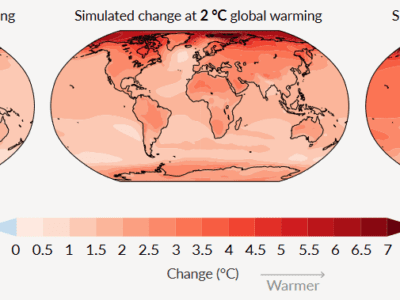Legal Planet Takes Over the Yale Law Journal
Along with Dan, I also have a response to the Ewing/Kysar paper at YLJ Online. (For those of your keeping score at home, two out of three commissioned responses were Legal Planet bloggers: we win!). It should surprise no one that while Dan’s is elegant and technical, mine is cranky and dyspeptic. Here’s the abstract:
This Essay comments on Benjamin Ewing and Douglas A. Kysar’s article, Prods and Pleas: Limited Government in an Era of Unlimited Harm. Ewing and Kysar suggest that we augment the traditional conception of constitutional “checks and balances” with one of “prods and pleas,” i.e., that different branches of government can provide incentives to induce action from other branches. They use federal climate nuisance litigation as an example of how such prods and pleas can and should operate. In the existing political climate, I am skeptical that governmental branches listen to reasoned arguments from other branches; thus, I argue that “pleas” will be ineffective. Ewing and Kysar’s theory of prods, however, contains an important insight. Branches often respond to political incentives, such that when one branch reaches a decision that undermines the political goals of key actors in other branches (a “prod”), action is possible. In this Age of Dysfunction, when one of the major American political parties seeks to paralyze legislative action, I suggest three areas where judicial prodding might be appropriate: 1) where legislation is blocked by a filibuster; 2) where opposition to legislation rejects science; and 3) where the legislative process produces results that discriminate against diffuse and invisible (and thus powerless) groups. I then use Ewing and Kysar’s example of climate change policy and argue that under current circumstances, judicial prodding is, in fact, appropriate.
I suppose I disagree with Dan somewhat on the utility of tort law for climate change regulation. As I have argued beforehand, state common-law public nuisance claims can form the basis of a robust climate regime, although we would probably want more than that. Connecticut v. AEP held that federal common law claims were displaced, but said nothing about state claims — probably for the good reason that the Clean Air Act is very clear when it wants to pre-empt state law, and it never even hints at pre-empting state public nuisance claims except against auto manufacturers. Put another way, if, as Dan says, states can play an important role in gap-filling, I see nothing a priori to think that state tort law can’t be a big part of that gap filling function. In the Age of Dysfunction, we need all hands on deck, especially since the Republican Party has gone off its meds.







Reader Comments